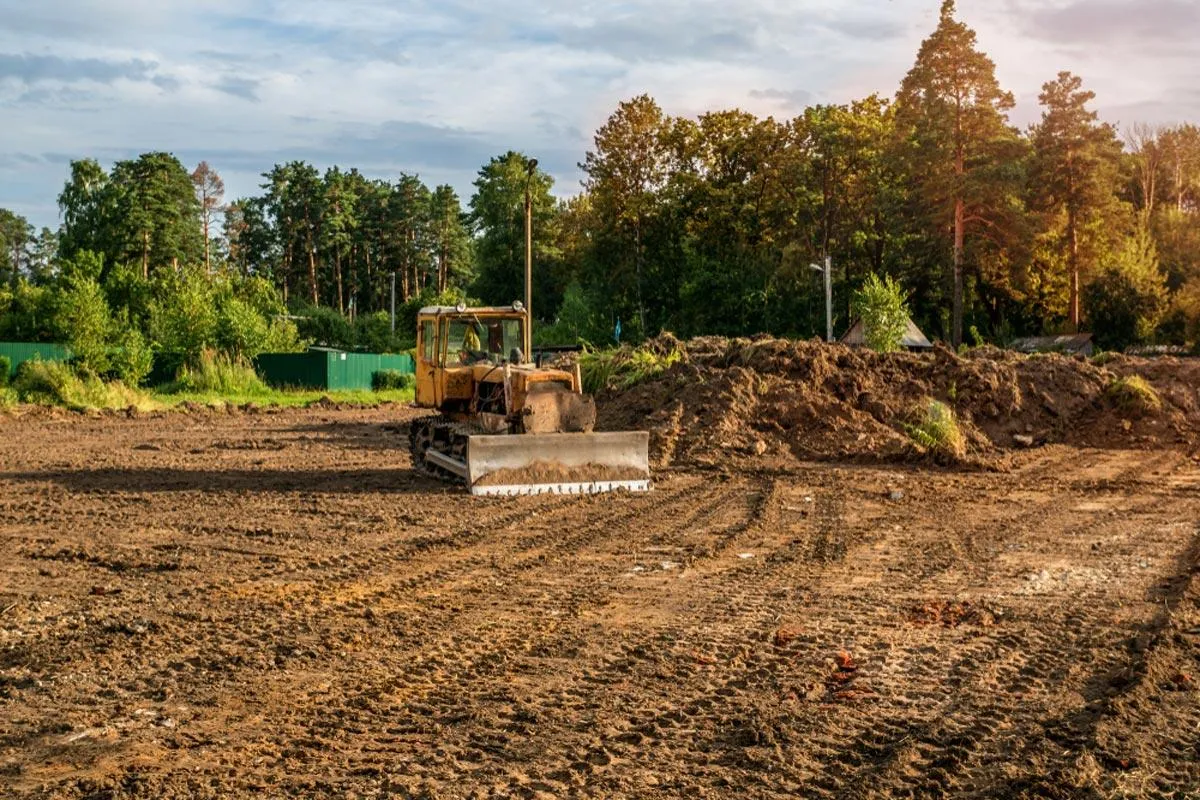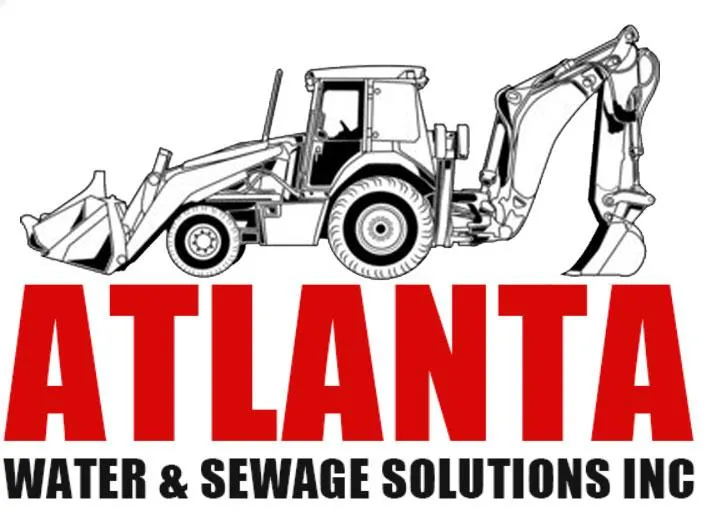
Grading Contractor Costs Near Fulton County | Real Breakdown
Why You’re Probably Here: Soggy Yards, Sloped Driveways, and Big Headaches
If you're reading this, chances are you're staring at a yard that won't drain, a driveway that's sloped the wrong way, or you're in the middle of prepping for a build that’s already stressing you out.
Maybe you're a homeowner in Fulton County trying to fix flooding that keeps ruining your backyard. Or maybe you’re a small builder looking to get land ready before the rain turns it into a mud pit. Either way, you're probably wondering:
“How much is this grading job really going to cost me?”
And more importantly—“Why does no one give me a straight answer?”
We get it. At Atlanta Water & Sewage Solutions, Inc, we’ve worked with folks just like you across Fulton, Greene, Forsyth, Gwinnett, and surrounding counties. You're not asking for anything fancy. You just want your ground to slope the way it’s supposed to, your water to drain like it should, and your bank account to stay intact when it’s all done.
So let’s break this down. No fluff. No nonsense. Just the real talk that homeowners and builders in Georgia deserve.
Who Really Needs a Grading Contractor in Fulton County? (And Who Doesn’t)
Not every dirt problem needs a bulldozer.
If you’re just filling in a small low spot in your backyard, you might be fine with a few loads of soil and a shovel. But if you’re dealing with:
Drainage issues that affect your foundation
Preparing land for a new build or addition
Water pooling near your home after it rains
Slope problems that make driveways or patios unsafe
…then yeah, you need a professional grading contractor. And not just someone who owns a skid steer. You need someone who understands local codes, stormwater flow, and Georgia’s quirky clay soils.
Grading isn’t just about moving dirt. It’s about understanding how water wants to move—and making sure it goes where you want it to go (instead of into your basement).
The Real Costs Behind the Price Tag—Not Just Dirt and a Bulldozer
Let’s say you call around and get a few quotes. One guy says $2,500. Another says $6,000. You might think, “That’s a big difference for moving some dirt.” And you’d be right.
But here’s the truth: grading jobs aren’t all priced the same way because every yard is different.
You’re not just paying for time and equipment. You're paying for:
Site prep and planning
Permit handling if required (yes, sometimes even for grading)
Hauling away excess soil or debris
Fixing drainage the right way, not the fast way
Matching your yard to future projects (driveways, patios, additions, etc.)
What looks like “a couple hours on a dozer” from the outside might actually be a multi-day project with slope measurements, drainage planning, and inspections.
Common Mistakes Homeowners Make (That Can Cost You Thousands Later)
Here’s where we see folks in Fulton County get burned:
Hiring someone who doesn’t check grades properly. You think it’s fixed until the next rainstorm.
Skipping proper drainage planning. Standing water in your yard or on your driveway? That’s a grading problem disguised as a landscaping issue.
Rushing the job before construction. If you grade before all your plans are set, you might end up doing it twice.
Going with the lowest bid. That "deal" might cost you more in repairs or fines when erosion controls aren’t done right.
It’s not just about saving money upfront. It’s about avoiding the domino effect of water damage, foundation issues, and cracked concrete down the road.
What Goes Into a Grading Estimate? The Questions You Should Be Asking
You should never feel awkward asking, “What am I actually paying for?”
Any grading contractor worth your time should walk you through:
How much soil is being moved—and where it’s going
What slope you’re ending up with (and why)
If drainage is included (and how it’ll be handled)
Whether erosion control measures are part of the plan
What’s not included (like sod or driveway prep)
Pro tip: If the quote feels vague, the work probably will be too.
The Hidden Costs Nobody Talks About Until It’s Too Late
Let’s talk about the part most contractors don’t explain until you’re already committed.
1. Haul-off fees
If extra dirt has to be trucked away, you might pay per load. And around Fulton County, dump fees and travel time can add up fast.
2. Permits or inspections
Some areas—especially near water or steep slopes—require special grading permits. That takes time and paperwork.
3. Drainage add-ons
Didn’t plan on a French drain? You might need one once the job starts, especially if the water table is high or your neighbor’s runoff is sneaking into your yard.
4. Weather delays
If it rains mid-project, it’s not just an inconvenience—it can affect your schedule, soil stability, and costs.
These aren't "gotchas." They're just the reality of earthwork in Georgia. We’ve learned to plan around them, and we help our clients do the same.
Cheap vs. Professional: Why a “Good Deal” Can Turn Into a Money Pit
There’s always a guy with a truck and a skid steer offering $500 grading jobs.
Sometimes it works. But we’ve also been the ones called in to fix those $500 jobs that caused $5,000 problems.
Here’s the thing: grading done poorly can affect every project that comes afterward—concrete, landscaping, even home resale.
When you hire a pro, you’re not just paying for equipment. You’re paying for:
Soil knowledge (clay, sand, loam — they all behave differently)
Drainage expertise
Understanding of Fulton County’s land use quirks
Insurance and licensing that protects your property
It’s not about overspending. It’s about spending smart to prevent bigger headaches.
How to Spot a Reputable Grading Contractor Near Fulton County
You don’t need to be a grading expert to hire one—you just need to know what to look for:
Do they ask to walk your site before quoting? (They should.)
Can they explain what they’re doing and why?
Do they know local soil types and drainage issues?
Do they have photos or examples of past work?
Do they explain things in plain English—or contractor jargon?
A good contractor makes the complicated stuff simple.
When Timing Matters: Why Season, Soil, and Slope Affect Your Final Price
Timing can actually change how much grading costs in Georgia.
Winter = frozen ground or muddy messes
Spring = wet soil and tight scheduling
Summer = drier soil but higher demand
Fall = often ideal (but book early)
Your soil type matters too. Red Georgia clay? It’s heavy and sticky. Sandy fill? It moves fast but may require stabilization. And if you’re working on a slope, expect more planning, equipment time, and erosion control.
How We Approach Grading Projects at Atlanta Water & Sewage Solutions, Inc
We’re not a giant firm, and we’re proud of that. It means we get to actually listen to you.
We start by walking your property with you. We talk through drainage. We look at how your land interacts with nearby homes, roads, and waterways. Then we tailor a plan that actually fits your property—not just the equipment we brought that day.
It’s personal for us. We’ve worked on everything from tight city lots in Atlanta to larger rural sites in Barrow and Greene counties. We bring our own equipment, we don’t cut corners, and we stay until the job is done right.
What to Know Before You Say “Yes” to a Grading Contractor
Hiring a grading contractor near Fulton County isn’t just about price—it’s about trust, timing, and making sure your land is ready for whatever comes next.
Before you say yes, make sure:
You understand what’s included (and what’s not)
Drainage is being addressed, not ignored
The contractor actually looks at your site before quoting
You feel good asking questions—and getting straight answers
Because grading isn’t just the start of your project—it’s the foundation. And if that part goes sideways, everything else will too.

